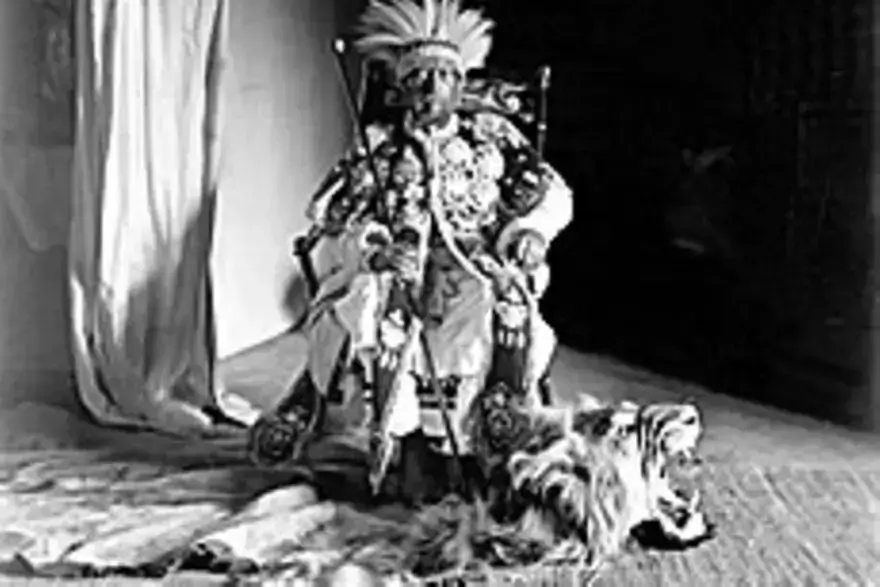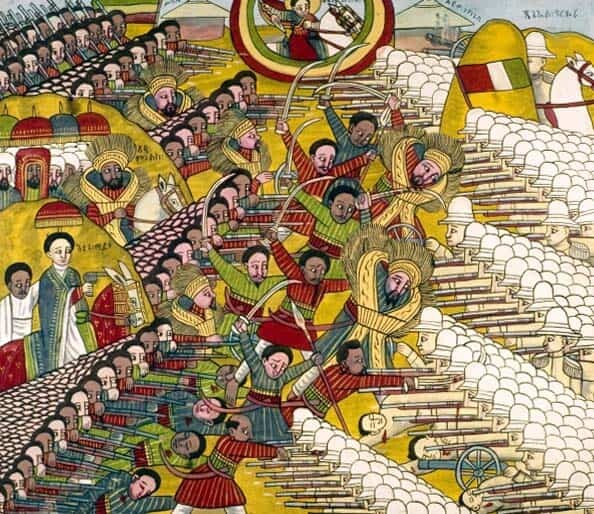
By swissinfo, Katrin Holenstein
A Swiss engineer who became foreign policy advisor to the emperor of Ethiopia is the subject of an exhibition at the Ethnographic Museum in Zurich.
Alfred Ilg emigrated to Ethiopia in 1879 and stayed there for 27 eventful years.
The exhibition documents the amazing story of how Ilg entered service with the Ethiopian emperor aged 25, and went on to become one of the most influential men in the country.
Emperor Menelik was very keen to modernise his country and build a new capital, and he employed workmen, technicians and military advisers from Europe.
Arriving in Ethiopia, the young Ilg soon found work in Addis Ababa, building bridges and streets. He personally installed the first water pipe in the emperor’s palace.
Ilg later installed machines, built an ammunition factory and taught the Ethiopian people how to use new weapons.
He took around 1,000 pictures during his time in Addis Ababa, some of which are on display in the Ethnographic Museum in Zurich.
The pictures show the royal family in their westernised surroundings, the emperor riding on his mule, the construction of the railway line and market scenes.
Political adviser
Ilg was born in 1854 into a poor family. After completing his studies at the Federal Institute of Technology in Zurich, he successfully applied for the job in Ethiopia.
A few years after his arrival, he was given the job as the emperor’s political adviser.
He was able to speak and write the local language, Amharic, and had proved his loyalty to the emperor on many occasions.
“I loved him like a father,” Ilg is quoted as saying about the emperor.
For his part, the emperor depended on the Swiss engineer’s advice and trusted him above all others. The fact that Ilg came from a neutral country during an era of colonialism was also an advantage.
Menelik felt threatened by the imperialistic policies of the European superpowers of France, Italy and Britain, as Ethiopia was the only country in Africa that had not been colonised.
It was Ilg who drew Menelik’s attention to discrepancies in the 1889 Treaty of Wichale, an agreement supposed to promote friendship and cooperation between Italy and Ethiopia.
More
War
He discovered that in the Italian version of the treaty Ethiopia was referred to as an Italian protectorate.
Ethiopia’s refusal to accept the treaty led Italy to declare war in 1895 in an attempt to preserve the power it thought it had achieved over the African country.
“I had underestimated the European countries’ imperialistic struggle for power,” Ilg wrote later in a letter.
With Ethiopia’s victory over Italy at the Battle of Adwa in 1896, the country’s independence was ensured and it began to attract foreign investment.
First railway
The construction of the 784km-long railway linking Addis Ababa and the coastal town of Djibouti began in 1897 and was completed 20 years later in 1917.
Part of the line was opened as early as 1902, and the first train to run on it was manufactured by the Swiss locomotive manufacturer, Winterthur.
By now Ilg was at the height of his career, drawing up a peace agreement between Italy and Ethiopia and receiving European diplomats.
In March 1897, Ilg was officially appointed privy counsellor to the emperor and received the highest order of the country – the star of Ethiopia.
But it wasn’t long before rivals began plotting against him, and his position became harder after the emperor fell ill in 1906.
Ilg’s influence faded and he returned to Zurich, where he lived with his wife and his four children until his death in 1916.
“Pomp and Glory at the Menelik Palace. Alfred Ilg’s Ethiopia around 1900” runs at the Ethnographic Museum until May 2005. The highlight is a film by Christoph Kühn exploring Ilg’s life through his letters.
swissinfo, Katrin Holenstein















